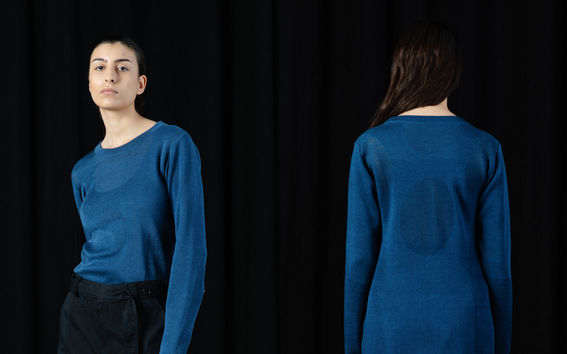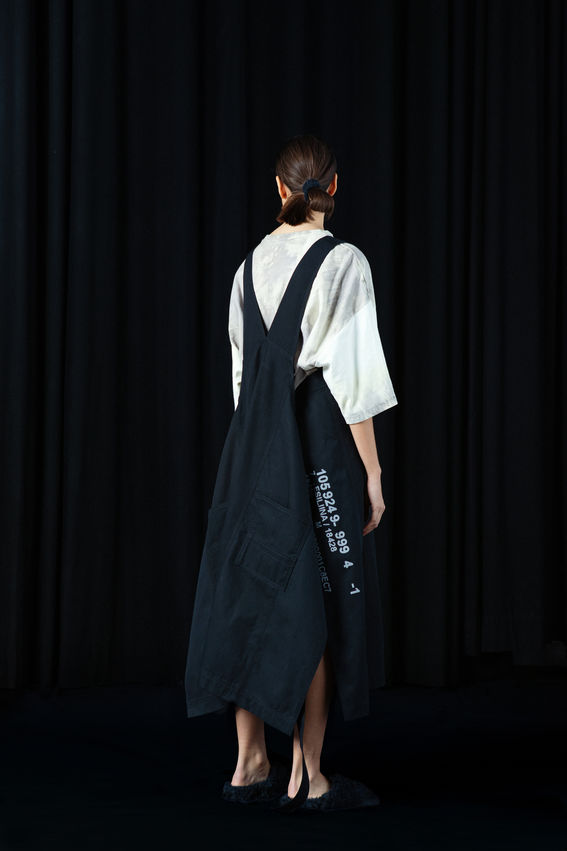Vision 2030: This is what the clothes of the future will look like

From 2023, all textile waste in Finland must be collected separately and recycled. Reaching this target will require change at many levels in the textile and clothing industry. It also requires change from the consumers who wear the clothes.
The FINIX research project on the future of sustainable textiles and clothing has outlined what the clothes of the future could look like. The collection aims to inspire and encourage change in the textile and fashion industry.
‘We set a vision for 2030 to steer ideas forward: in 2023, textile waste collection will already be reality, so systemic change too should happen by then’, says Professor Kirsi Niinimäki from the FINIX project, led by Aalto University.
To achieve large-scale system-level change, a lot of multidisciplinary research, life-cycle assessment, transparency across the supply chain and new business thinking are needed. We also need bold experiments and examples of how we design, manufacture, use and recycle textiles and clothing.
Professor Niinimäki believes that all textile waste will be recycled and reused: ‘Recycling and reuse are essential if we want to move towards sustainability.’
Change is already happening on many fronts.
‘At FINIX, we have a number of separate research paths, all aiming at the same end result: sustainable textile production, use and recycling. The prototype collection brings together these different areas of research into a more understandable whole - a vision of what the clothes of the future could be’, she says.
Stronger and better quality fibre

Aalto University Master's student Elina Onkinen and alumna Kasia Gorniak designed and made prototypes from Ioncell yarn and old hand towels and workwear from the textile service company Lindström. The hand towels were recycled into a new fibre and yarn using Ioncell technology developed by Aalto University in collaboration with the University of Helsinki.
‘The result surprised us positively, as the fibre turned out much stronger than in previous experiments’, Niinimäki rejoices.
The prototype design experiment aims to show how the life of textiles can be extended by cleverly designing and reconstructing old clothes into new ones or recycling textile waste into new fibres, yarns and garments.
For designers, the Ioncell process is inspiring because it can improve the properties of materials.
‘You wouldn’t realise the top is made from old hand towels because it has such a different feel to it’, explains Onkinen, who specialises in bio-based and recycled materials in her research. ‘The yarn becomes luxurious!’ chimes in Gorniak, who has worked extensively with knitted garments.
Read more about the designers' ideas: Workwear and hand towel rolls become high fashion
A tool to collect life cycle data is under development
Sustainable design is based on quality control, saving resources and designing a garment to last for many lifetimes. In the future, we will design for the life cycle and recyclability of a product rather than for a single product. Better design and production can prevent overproduction and create a better balance in the textile and clothing production system.
FINIX is exploring the life cycle of textile products and the data that can be used to calculate the environmental impact of the different stages in the life cycle of a garment. The research project is currently developing a tool for life cycle information on textiles and textile products: the application should provide accurate information, for example on the use of chemicals or energy consumption, which in turn will help companies to manage their production more sustainably.
The app was presented at last autumn's Slush event, where visitors were able to try it out: by downloading the app, they could see what background information was available on the garment. According to visitor feedback, the trial provided good insights.
Professor Kirsi NiinimäkiCompanies are working hard to change their operations sustainable. They are also genuinely interested in changing the way they do business.”
Finland consumes around 70 000 tonnes of textiles per year. Researchers and companies are rapidly developing better ways to use textile waste.
‘Companies are working hard to change their operations to be sustainable. They are also genuinely interested in changing the way they do business. In Finland, the infrastructure for textile recycling has not yet been built. Paimio has the first textile collection facility, but that alone is not enough’, says Kirsi Niinimäki.
Pressure for change is coming from many directions. The European Union's Green Deal, the guidance on sustainable production and consumption, which is due in early 2022, is currently being awaited. ‘We have already started to prepare for it.’
Read more:
Contact:
Associate Professor Kirsi Niinimäki, School of Arts, Design and Architecture, kirsi.niinimaki@aalto.fi, +358505693359
Read more news

Significant donation to boost pavement engineering research and education
Companies and associations in the field have donated €400,000 to the School of Engineering.
‘Mesoscale’ swimmers could pave way for drug delivery robots inside the body
Researchers have discovered how tiny organisms break the laws of physics to swim faster — such secrets of mesoscale physics and fluid dynamics can offer entirely new pathways for engineering and medicine.
Design strengthens industrial competitiveness – human-centered factory work at the core
Factory work is undergoing a transformation: new technologies and artificial intelligence are changing the content and roles of work. Aalto University’s Department of Design is studying this change from a human-centered perspective in the HiFive project.






